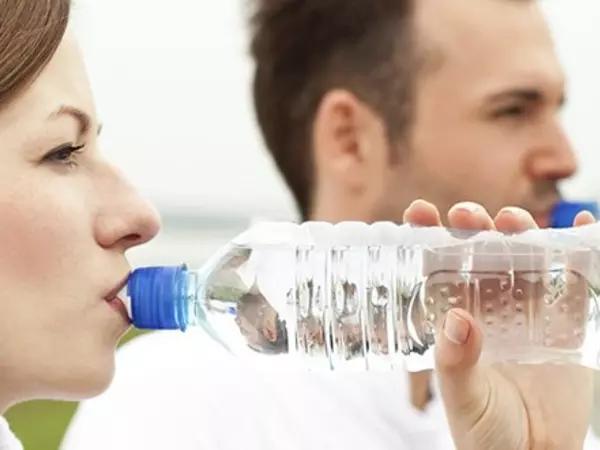As the heat rises and summer beckons, it’s vital to know the dangers caused by the heat. Heat-related illnesses, ranging from mild discomfort of heat rash to the life-threatening severity of heatstroke, can strike anyone who experiences high temperatures and humidity. Understanding the differences between these conditions, recognizing the warning signs, and taking proactive measures to safeguard yourself is essential when temperatures rise.
Heat-related illnesses
There are a range of heat-related illnesses, each presenting its unique set of symptoms and requiring tailored treatments. At the milder end, we have heat rash, a skin irritation caused by excessive sweating, and heat cramps, painful muscle spasms triggered by a depletion of salts and fluids. As heat intensity increases, we encounter heat exhaustion, a more serious condition, with symptoms including headaches, dizziness, and nausea. At the most severe end of the spectrum lies heatstroke, a life-threatening condition marked by a dangerously high core body temperature, neurological disturbances, and the potential for organ damage.
What are the warning signs of heat exhaustion?
Heat exhaustion is a critical stage in the progression of heat-related illnesses, serving as a potential sign of heatstroke. Characterized by a body temperature ranging between 101°F (38.3°C) and 104°F (40°C), symptoms of heat exhaustion include heavy sweating, pale or clammy skin, muscle cramps, headaches, dizziness, weakness, tiredness, nausea, and a rapid, weak pulse. The presence of any of these signs should prompt an immediate action to cool the individual to prevent the condition from worsening.
What is the difference between heat exhaustion and heatstroke?
Heat exhaustion and heatstroke are distinct conditions with important differences. Heatstroke is the most severe form of heat-related illness, and is characterized by a core body temperature above 104°F (40°C), often accompanied by the absence of sweating, dry and flushed skin, confusion, seizures, and even loss of consciousness. Heatstroke is a medical emergency requiring immediate medical attention to prevent permanent organ damage or even death.
What factors influence heat-related illness risk?
Certain factors can increase a persons susceptibility to heat-related illnesses, making them more vulnerable to the effects of high temperatures. Age is a significant risk factor, with the young and elderly being particularly vulnerable. Dehydration, certain medications, and a lack of acclimatization to hot environments can also increase the risk. Strenuous physical activity or working in hot, humid conditions can further exacerbate the likelihood of experiencing heat exhaustion or heatstroke.
Preventing heat exhaustion and heatstroke
There are several ways to reduce the risks associated with heat-related illnesses. Staying hydrated by drinking plenty of fluids, such as water or electrolyte-rich drinks, is a basic step. Also, wearing lightweight, loose-fitting clothing allows sweat evaporation and prevents overheating. Finding shady cool areas or air-conditioned spaces during the hottest parts of the day, and gradually acclimating to hot environments, can also reduce the chances of heat illness.
Responding to heat exhaustion
Individuals showing signs of heat exhaustion, will need immediate attention. Firstly, remove the person from the hot environment and move them to a cooler, shaded area. Encourage them to sip cool water or electrolyte-replenishing drinks, and apply cool, wet cloths or ice packs to the skin to reduce their body temperature. If symptoms persist or become worse, seek medical attention, as heat exhaustion can progress to life-threatening heatstroke very quickly.
Treating heatstroke: A medical emergency
Heatstroke, the most severe form of heat-related illness, requires urgent medical help. It is essential to call emergency services immediately. While waiting, initiate cooling measures, such as immersing the individual in cold water, applying ice packs to the neck, armpits, and groin, and misting the skin with cool water continuously. Also, maintain a constant flow of air around the individual to aid in the cooling process.
The importance of acclimatization
Acclimatization is the process by which the body adapts to hot environments. It plays an important part in reducing the risks of heat-related illnesses. Individuals who are not accustomed to high temperatures and humidity are more vulnerable to heat exhaustion and heatstroke. Gradually expose yourself to the heat, starting with short durations and increasing the intensity and duration. This will allow your body to build up its tolerance and improve its thermoregulatory mechanisms.
Medications
Certain medications can increase an individual’s vulnerability to heat-related illnesses. Drugs such as beta-blockers, diuretics, and antidepressants, can impair the body’s natural cooling mechanisms and people taking these should be especially vigilant in hot weather, staying hydrated, limiting physical activity, and seeking shade or air-conditioning when possible.
Protecting the vulnerable
The young and the elderly are more susceptible to heat-related illnesses, requiring special attention and care. Infants and young children lack developed thermoregulatory systems adults possess, making them more vulnerable to heat. Older adults may on the other hand have reduced physiological responses to heat, as well as other health conditions that increase the risk. Ensuring hydration, limiting exposure to high temperatures, and monitoring these vulnerable populations more closely is crucial in preventing heat-related emergencies.
The combination of heat and humidity
High temperatures and humidity can create a particularly dangerous environment, exacerbating the body’s ability to regulate its temperature. In these conditions, sweat may not evaporate efficiently, leading to a rapid increase in core body temperature and an increased risk of heat-related illnesses. Individuals must be vigilant in monitoring the heat index, a measure for both temperature and humidity and take appropriate steps when the index reaches higher levels.
By understanding heat-related illnesses, recognizing warning signs, and taking proactive steps to reduce the risks, individuals can manage the challenges of high summer temperatures with greater confidence and safety.
Sources
- Heat Stress Related Illness – NIOSH – CDC
- Heat exhaustion – Symptoms and causes – Mayo Clinic
Medical Disclaimer
NowPatient has taken all reasonable steps to ensure that all material is factually accurate, complete, and current. However, the knowledge and experience of a qualified healthcare professional should always be sought after instead of using the information on this page. Before taking any drug, you should always speak to your doctor or another qualified healthcare provider.
The information provided here about medications is subject to change and is not meant to include all uses, precautions, warnings, directions, drug interactions, allergic reactions, or negative effects. The absence of warnings or other information for a particular medication does not imply that the medication or medication combination is appropriate for all patients or for all possible purposes.







